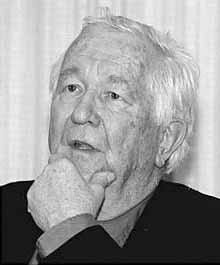William Styron On Willie Morris and Southern Writing Interview by Glynn Wilson TS: Relate the stories of what Willie Morris means to you, how he may have helped you in your career at some point?
I don't want to downgrade Willie's contribution. I didn't mean to do that. It's just that I don't think Willie was instrumental in either Mailer's career or mine. We were pretty well established. I think it would be somewhat of an overstatement to say that Willie helped get that Pulitzer Prize, because I think the Pulitzer Prize was really on the basis of the entire book, which came out independent of the excerpt. But certainly any of these things sort of contributed substantially to the respective successes of our books. And to that extent Willie was very valuable and an extremely important aspect of our careers. TS: What did Willie Morris mean to you, then, as a friend, a colleague? WS: Well I just got along with him fine. We spent many a night together. In those days there was a lot of carousing and partying. He enjoyed, as I did, sitting up late at night telling stories and drinking. We became fast friends. I realized that he had a very interesting and penetrating mind. He knew a lot about a lot of things. He was a very sophisticated man. He had a great sense of Southern history for one thing, and the South as an entity, as an important tradition in America. On all of these things I saw eye-to-eye with him because I too, having been born in the South, and I felt myself somewhat of an exile, like Willie, felt myself in a rather ambiguous situation regarding the South, having one foot in the North physically, and with the memories of the South. So we discussed this at great length, what it meant to be a Southerner living in the North. It evoked a lot of rather comical conclusions. We always felt like fish out of water in many ways. One of Willie's interesting characteristics was that he was able on a very high level to deal with the intellectuals in New York, the largely Jewish intellectual society, which on one level he felt alien to. On another level he felt very close to them, and they in effect became very close to him. It was an interesting sort of transmutation of roles to see how Willie so readily became so friendly with these sophisticated Jewish intellectuals. They admired him and he admired them. It was a fascinating connection. TS: Do you think that Willie Morris was a great writer?  WS: It depends. You could say that at certain moments he had peaks of greatness as a journalist. I don't think he himself ever considered himself an important fiction writer. But I think his work as a memoirist, his work as an autobiographer, especially in a book like North Toward Home, he achieved a kind of status of at least a minor classic if nothing else, and that's no mean feat. And also his other writing, his journalism, his essays, are of very high quality. And I don't think it's important to [settle the question of] whether he's great or not. He's certainly a memorably good writer.
WS: It depends. You could say that at certain moments he had peaks of greatness as a journalist. I don't think he himself ever considered himself an important fiction writer. But I think his work as a memoirist, his work as an autobiographer, especially in a book like North Toward Home, he achieved a kind of status of at least a minor classic if nothing else, and that's no mean feat. And also his other writing, his journalism, his essays, are of very high quality. And I don't think it's important to [settle the question of] whether he's great or not. He's certainly a memorably good writer.
Copyright © The Southerner 1999. |








